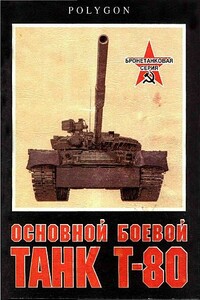Проективный словарь гуманитарных наук - [317]
], 2000-16). Finally, in the last fifteen years I have become increasingly concerned with the fate of the humanities as a whole and the potential for developing humanities-based practices and technologies capable of influencing the life of society. This is the subject of the books Znak probela. O budushchem gumanitarnykh nauk (Mapping Blank Spaces: On the Future of the Humanities, 2004), The Transformative Humanities: A Manifesto (2012), and Ot znaniia – k tvorchestvu. Kak gumanitarnye nauki mogut izmeniat’ mir(From Knowledge to Creativity: How the Humanities Can Change the World, 2016). This dictionary thus stands as a sort of synthesis of my previous works in various fields of the humanities.
This dictionary is doubly authorial: all its entries were written by a single author; and most of the concepts and terms featured in it belong to the same person. It was conceived not only as a reference aid, but also a form of advancing new ideas that affect various fields of the humanities. The dictionary as a whole is a sort of a performative utterance, which of course differs from a description or a statement of fact: the performative utterance accomplishes that which it communicates, by the very fact of its being uttered. Such statements as “I promise” or “agreed” themselves enact what they speak of (a promise or agreement). Thus does the predictionary aspire, by the very fact of communicating certain ideas, to enact them, to introduce them into the field of humanities theory and intellectual practice. A performative dictionary is an action in the sphere of language and culture.
The dictionary consists of fourteen sections in a specific thematic order. First, from general issues of the humanities to philosophy and such subdivisions thereof as ontology (being and the world), epistemology (thought and knowledge), and modality (potentiality and creativity). Then comes consideration of the central themes of humanities research: time and history, religion, the individual and ethics, culture and aesthetics, literature, text, and language. The final sections turn to those fields of human existence where the humanities intersect with the interests of other – biological, social, technological – disciplines: life and the body, society and politics, technology and information science.
Naturally, the genre of dictionary does not presuppose reading every section in precisely this sequence; the choice depends on the reader’s interests. For an overall orientation as to the dictionary’s subject matter, it is recommended that the reader first acquaint him/herself with section one, “The Humanities As a Whole” (especially the entry “The Humanities”). Within each section, terms are presented in alphabetical order.
Far from every field in the humanities is covered in the dictionary. Virtually unrepresented are anthropology and historiography, as well as disciplines that study particular forms of art (art criticism, musicology, theater studies, film studies). At the same time, a particular emphasis is laid, reflecting the latest tendencies in interdisciplinary cooperation, on a range of issues previously considered marginal to the humanities: their intersection with biology, technology, information science, cognitive science, modality theory, artificial intelligence, and virtual reality.
A particular feature of the dictionary is that it projects one and the same concept onto different disciplinary fields. The concept of technomorality, for instance, may be examined in the section on technology and the section on ethics. How should ecofascism (environmental extremism) be categorized: under the rubric of life and nature, or society and politics? Insofar as new conceptual terms are formed precisely on the boundary of several disciplines, they may effectively belong to each, which is reflected in the subject index at the end of the book.
One may look up concepts in the dictionary according to the thematic sections and particular disciplines, or according to issues of interest, following cross-references to other terms and learning more about them via the sources cited, many of which are available online. Each section opens with a list of relevant terms, while the alphabetic and subject indexes at the end of the book provide shortcuts between sections. The dictionary entries have a uniform arrangement: the headword is followed by its English translation; its components and method of formation; its definition, and the rationale for introducing it into the conceptual apparatus of the discipline in question; discussion of how it relates to other concepts; and references to sources.
The dictionary as a whole is of a systematic nature, but this is a particular sort of centrifugal system, one that presupposes the articulation of multiple concepts that cannot be reduced to a single compact scheme or broadest-possible primary concept. A centrifugal system like this, with concepts spinning off into various subject fields, differs from the better-known centripetal systems exemplified by Hegel’s
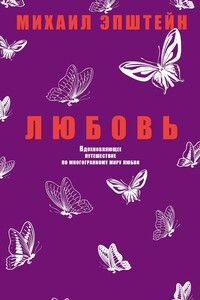
Многомерный мир любви раскрывается в книге Михаила Эпштейна с энциклопедической широтой и лирическим вдохновением. С предельной откровенностью говорится о природе эротического и сексуального, о чувственных фантазиях, о таинствах плотского знания. Книга богата афористическими определениями разных оттенков любовного чувства. Автор рассматривает желание, наслаждение, соблазн, вдохновение, нежность, боль, ревность, обращась к идеям диалогической и структуральной поэтики, экзистенциальной психологии, философской антропологии.
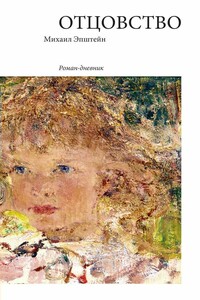
Автор книги «Отцовство» — известный философ и филолог, профессор университетов Дарема (Великобритания) и Эмори (Атланта, США) Михаил Эпштейн. Несмотря на широкий литературный и интеллектуальный контекст, размышления автора обращены не только к любителям философии и психологии, но и ко всем родителям, которые хотели бы глубже осознать свое призвание. Первый год жизни дочери, «дословесный» еще период, постепенное пробуждение самосознания, способности к игре, общению, эмоциям подробно рассматриваются любящим взором отца.
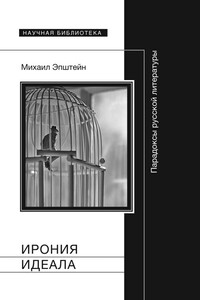
Русская литература склонна противоречить сама себе. Книга известного литературоведа и культуролога Михаила Эпштейна рассматривает парадоксы русской литературы: святость маленького человека и демонизм державной власти, смыслонаполненность молчания и немоту слова, Эдипов комплекс советской цивилизации и странный симбиоз образов воина и сновидца. В книге прослеживаются «проклятые вопросы» русской литературы, впадающей в крайности юродства и бесовства и вместе с тем мучительно ищущей Целого. Исследуется особая диалектика самоотрицания и саморазрушения, свойственная и отдельным авторам, и литературным эпохам и направлениям.

В книге рассказывается история главного героя, который сталкивается с различными проблемами и препятствиями на протяжении всего своего путешествия. По пути он встречает множество второстепенных персонажей, которые играют важные роли в истории. Благодаря опыту главного героя книга исследует такие темы, как любовь, потеря, надежда и стойкость. По мере того, как главный герой преодолевает свои трудности, он усваивает ценные уроки жизни и растет как личность.
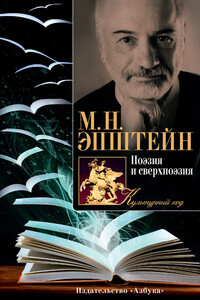
Михаил Наумович Эпштейн – российский философ, культуролог, литературовед, лингвист, эссеист, лауреат премий Андрея Белого (1991), Лондонского Института социальных изобретений (1995), Международного конкурса эссеистики (Берлин – Веймар, 1999), Liberty (Нью-Йорк, 2000). Он автор тридцати книг и более семисот статей и эссе, переведенных на два десятка иностранных языков. Его новая книга посвящена поэзии как особой форме речи, в которой ритмический повтор слов усиливает их смысловую перекличку. Здесь говорится о многообразии поэтических миров в литературе, о классиках и современниках, о тех направлениях, которые сформировались в последние десятилетия XX века.
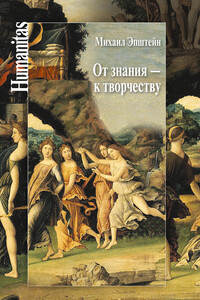
М.Н. Эпштейн – известный филолог и философ, профессор теории культуры (университет Эмори, США). Эта книга – итог его многолетней междисциплинарной работы, в том числе как руководителя Центра гуманитарных инноваций (Даремский университет, Великобритания). Задача книги – наметить выход из кризиса гуманитарных наук, преодолеть их изоляцию в современном обществе, интегрировать в духовное и научно-техническое развитие человечества. В книге рассматриваются пути гуманитарного изобретательства, научного воображения, творческих инноваций.
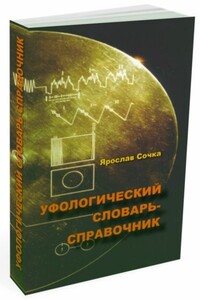
Перед Вами уникальное в своем роде издание — уфологический словарь-справочник, в котором приведены статьи о различных аспектах уфологии (наука об НЛО — неопознанных летающих объектах). Автор-составитель (проблему НЛО изучает с 1989 года) преследовал цель описать и упомянуть практически все ходовые термины и словосочетания из уфологии, открытия в этой молодой и спорной науке, указать все разнообразие уфологических гипотез и дискуссий и тем самым классифицировать уфологические знания и опыт, что весьма необходимо в современной "разрозненной" уфологии.
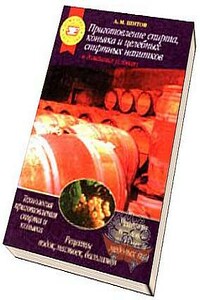
Данная книга раскрывает практические навыки переработки крахмального и сахаросодержащего сырья для приготовления спирта и крепких напитков в домашних условиях. В книге дано описание этапов получения спирта, а также приборов для перегонки и ректификации. Описаны способы получения различных веществ для ароматизации напитков. Приведенные рецепты позволяют приготовить ароматные крепкие напитки и натуральные вина с высокими вкусовыми качествами. В книге содержатся рецепты целебных настоек, которые могут успешно применяться для улучшения самочувствия.Книга предназначена для широкого круга читателей, интересующихся приготовлением домашних вин и целебных настоек, а также использованием продуктов сада и огорода в домашнем хозяйстве.
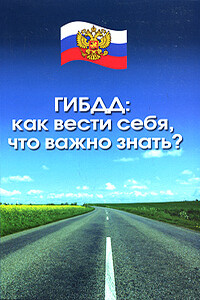
Ни для кого не секрет, что с каждым днем все чаще и чаще водители сталкиваются с произволом и превышением должностных полномочий сотрудниками ГИБДД.Отчасти это происходит по причине правовой безграмотности водителей, а порой и от нежелания водителей вступать в диалог с представителями власти и отстаивать свои права. Цель данного издания не изменить текущую ситуацию, а научить водителей элементарным «правилам поведения», дать основные и неотъемлемые знания, которые поистине можно приравнять по значимости к знаниям ПДД.В книге раскрываются типичные нарушения сотрудниками ГИБДД установленных законодательством правил и способы защиты от подобных действий, даются советы, как поступить в той или иной ситуации.

В книге рассказывается история главного героя, который сталкивается с различными проблемами и препятствиями на протяжении всего своего путешествия. По пути он встречает множество второстепенных персонажей, которые играют важные роли в истории. Благодаря опыту главного героя книга исследует такие темы, как любовь, потеря, надежда и стойкость. По мере того, как главный герой преодолевает свои трудности, он усваивает ценные уроки жизни и растет как личность.
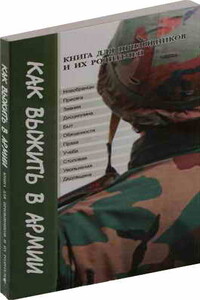
Книга содержит полезную практическую информацию для призывников и их близких, которая поможет получить правильное представление о прохождении службы в Вооруженных силах, о трудностях, которые можно ожидать и о том, как с ними справиться. Автор в увлекательной форме рассказывает о разных сторонах армейской жизни. Книга вызовет интерес у широкого круга читателей.
